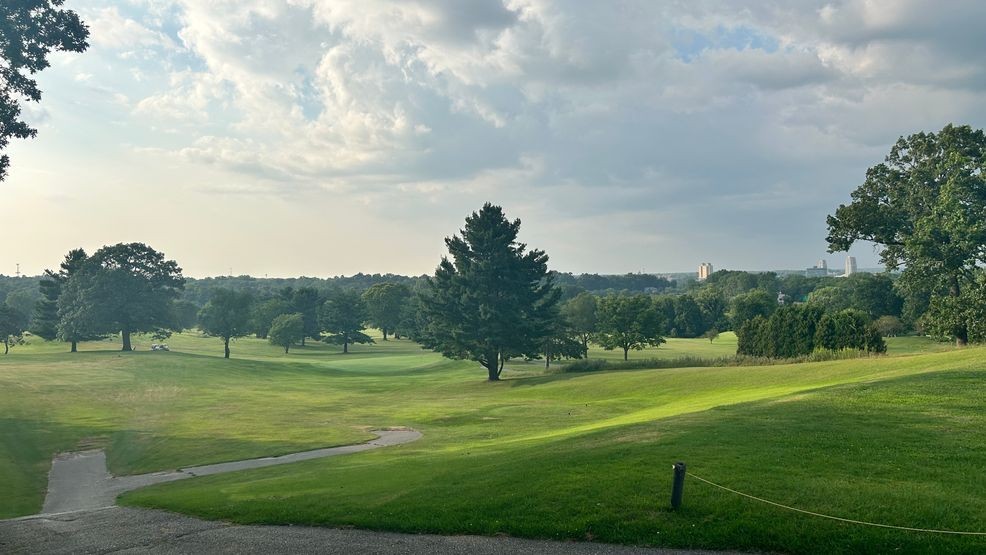BATTLE CREEK, Mich. — An early proposal to convert a Battle Creek golf course into an industrial-residential complex has sparked concern among some residents.
“This place is a cherished institution around this little local community,” one longtime golfer told News Channel 3 about Riverside Golf Club & Banquet Center.
Once a country club and later a public golf course, Riverside dates back to 1926 — with nearly a century’s worth of old photos and tournament memorabilia to show for it.
The property has been up for sale for about two years. Now, it is under a tentative contract with Interstate Capital Investments (ICI), a firm that said it develops mid-sized industrial cities, particularly throughout the Midwest.
Residents living within a 400 foot radius of Riverside were invited to a community engagement meeting on Wednesday to learn about the plans and provide feedback.
Renderings for ICI’s proposed development that were shared during the workshop showed about a quarter of the land divided into a residential district, with single family lots, townhomes, and “transitional” use. Another quarter of the land is labeled for commercial and office buildings and nearly half of the land is outlined for industrial space.
The developers stated during the meeting that the industrial portion could end up being occupied by one or several large buildings, totaling between 50 and 150 square feet.
While some residents said they are open to the idea of new development, the majority of people who spoke up urged against anything industrial coming into the primarily residential community.
“I am concerned about the word industrial,” said one resident. Another added, “I’m assuming the industrial part is based on that you can get some money for those lots.”
One resident pointed out concerns about whether current infrastructure is equipped to handle the development and another asked how a massive change from golf course to industrial development would change the City of Battle Creek’s ‘Master Plan’.
Other residents pointed out potential economic concerns related to no longer having a golf course in the area, such as a loss in revenue to nearby restaurants and businesses and devalued properties.
During the meeting, Todd Krajniak, a partner with Interstate Capital and director of acquisitions, emphasized the importance of community feedback in shaping the project.
“We wanted to better understand and avoid conflicts,” he said.
Jason Raleigh, a senior project manager at AR Engineering, said he also heard the communities feedback and would be taking it to his team to brainstorm what they need to do differently.
“Potentially change the whole approach or reduce the concerning portions [and] the impacts of that. Whether that’s showing more of the vision,” Raleigh said.
Among ideas he shared as potential options were paths, small parks or playgrounds, greenspace and landscaping.
The updated proposal, based on the provided feedback, will soon go to the city’s planning division for review before being recommended to the board of commissioners as a “conditional zoning application,” the team said.
A notice of the city commission meeting in which this proposal will be shared is expected to go out by mail to nearby residents and will be posted on the city’s website, according to Darcy Schmitt, planning supervisor.
The city commission will ultimately decide on whether to approve conditional zoning for the final proposal with specific limitations and qualifications binding to the development.
